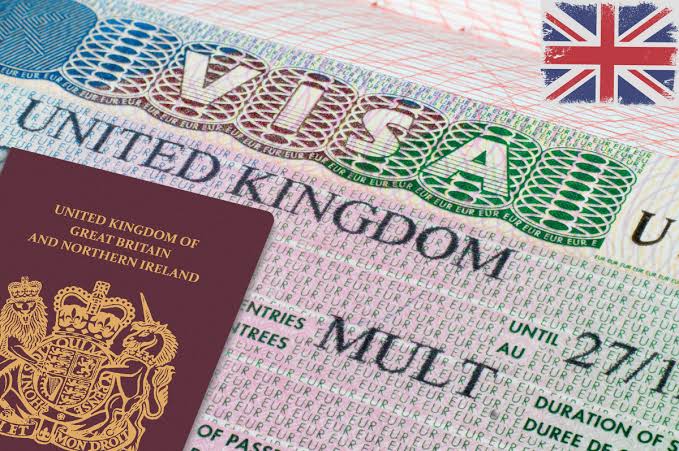Ireland has become a popular destination for international students, not only for its high-quality education but also for the various work opportunities available during and after studies. This comprehensive guide explores the part-time job options for students, as well as the post-study work visa options available, such as the Third Level Graduate Scheme.
1. Part-Time Work Opportunities for Students
Legal Framework for Student Work
International students in Ireland are allowed to work part-time during their studies under specific conditions:
- Eligibility: Students on a valid student visa can work part-time (up to 20 hours per week) during term time and full-time during scheduled breaks.
- Job Types: There is a wide variety of jobs available, which include roles in retail, hospitality, administration, and tutoring.
Popular Part-Time Job Sectors
Hospitality and Tourism
The hospitality industry is one of the largest employers in Ireland, especially in cities like Dublin, Galway, and Cork. Roles in this sector include:
- Waitstaff and Bartenders: Common roles that require good communication skills.
- Hotel Staff: Positions such as front desk personnel, housekeeping, and event staff are often available.
Retail
Retail jobs are widely available in Ireland, particularly in shopping centers and city centers. Opportunities include:
- Sales Assistants: Assisting customers, managing stock, and handling transactions.
- Cashiers: Working in supermarkets or convenience stores.
Tutoring and Teaching
Students with expertise in specific subjects may offer tutoring services. Opportunities include:
- Private Tutoring: For school students in subjects like math, science, and languages.
- Language Teaching: Teaching English as a foreign language (TEFL) to non-native speakers.
Internships and Work Placements
Many courses include work placements or internships as part of the curriculum. These opportunities can provide invaluable work experience:
- Professional Internships: Positions related to your field of study, offering practical experience.
- Research Assistantships: Opportunities in academic settings to assist professors with research.
Finding Part-Time Work
Job Portals and Websites
Several online platforms can help students find part-time job opportunities:
- Job Boards: Websites like LinkedIn, Indeed, Monster, and IrishJobs are useful for job searches.
- University Career Services: Most universities have dedicated career services that provide job listings and support for students.
Networking
Networking can be a powerful tool in finding job opportunities:
- University Networks: Engage with university alumni, faculty, and student organizations.
- Local Community: Attend community events and engage with local businesses.
Social Media
Social media platforms, particularly LinkedIn, can also be effective in finding job opportunities:
- LinkedIn: Create a professional profile and connect with local businesses and professionals.
- Facebook Groups: Join student or community groups where job postings are shared.
2. Post-Study Work Opportunities
Third Level Graduate Scheme
One of the most attractive aspects of studying in Ireland is the Third Level Graduate Scheme, which allows graduates to remain in Ireland for a specified period after completing their studies.
Overview of the Scheme
- Eligibility: This scheme is available to non-EU/EEA graduates who have completed a full-time program of at least 12 months at an Irish higher education institution.
- Duration: Graduates can stay in Ireland for up to 24 months to seek employment or start a business.
Application Process
- Application Form: Graduates must complete an application form for the Graduate Scheme while staying in Ireland.
- Documentation: Required documents include your assport, proof of graduation, valid IRP card, and any other relevant paperwork.
- Application: Apply within six months of being notified of the degree award.
Job Opportunities Post-Graduation
Once you are on the Graduate Scheme, you can explore various job opportunities in Ireland:
Employment Sectors
Ireland's economy is diverse, offering opportunities across multiple sectors:
- Technology: With companies like Google, Facebook, and Microsoft, the tech sector is booming.
- Finance: Dublin is a major financial hub, attracting many international banks and finance companies.
- Healthcare: Opportunities in healthcare roles, including nursing and medical research.
- Engineering: A strong demand for engineers in various fields, including civil, mechanical, and software engineering.
Networking and Job Search
Post-graduation, networking becomes even more crucial in securing a job:
- Career Fairs: Attend job fairs organized by universities or industry associations to connect with potential employers.
- Professional Organizations: Join relevant professional associations that can provide networking opportunities.
3. Rights and Responsibilities of Student Workers
Employment Rights
As a student worker in Ireland, you have specific rights:
- Minimum Wage: All workers are entitled to receive at least the national minimum wage.
- Working Conditions: Employees are entitled to a safe working environment and should be treated fairly.
Taxation and Social Insurance
International students who work in Ireland are subject to the same tax laws as Irish citizens:
- Tax Identification: You may need to apply for a Personal Public Service Number (PPSN) to pay taxes and access social services.
- Tax Returns: Depending on your income level, you may need to file a tax return.
4. Tips for Finding Work in Ireland
Prepare Your CV and Cover Letter
A well-crafted CV and cover letter can significantly enhance your chances of securing a job:
- Tailor Your Application: Customize your CV and cover letter for each position you apply for.
- Highlight Skills: Emphasize transferable skills and relevant experience.
Leverage University Resources
Utilize your university's career services for support:
- Workshops: Attend workshops on job searching, CV writing, and interview preparation.
- Job Listings: Many universities maintain job boards specifically for students.
Stay Informed About Work Regulations
Keep up-to-date with any changes to work regulations for international students to ensure compliance:
- INIS Updates: Regularly check the [Irish Naturalisation and Immigration Service](https://www.inis.gov.ie) website for the latest information.
Ireland offers a wealth of work opportunities for students and graduates alike. With a robust part-time job market and attractive post-study work options like the Third Level Graduate Scheme, international students can gain valuable experience and build connections that can enhance their career prospects. By leveraging available resources and maintaining an active presence in both academic and professional networks, students can maximize their chances of success in the Irish job market. Whether through part-time roles during your studies or full-time positions after graduation, Ireland presents numerous pathways to professional growth and development.



.JPG)


